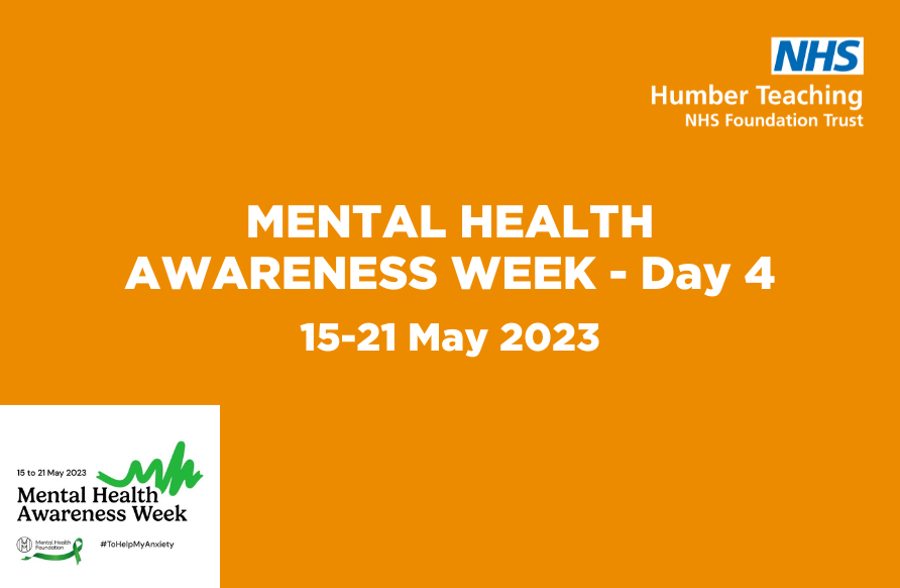Day 4 - Mental Health Awareness Week 2023 - Obsessive Compulsive Disorder
Published: 01 January 0001

Obsessive Compulsive Disorder
For Mental Health Awareness Week this year, the focus is anxiety.
However, anxiety can come in many forms, one of which we are focusing on this week comes in the form of Obsessive Compulsive Disorder (OCD).
So, what is OCD?
Obsessive-compulsive disorder (OCD) has two main parts: obsessions and compulsions.
Obsessions are unwelcome thoughts, images, urges, worries or doubts that repeatedly appear in your mind. They can make you feel very anxious (although some people describe it as 'mental discomfort' rather than anxiety). You can read more about obsessions here.
Compulsions are repetitive activities that you do to reduce the anxiety caused by the obsession. It could be something like repeatedly checking a door is locked, repeating a specific phrase in your head, or checking how your body feels.
What to look out for:
You might find that sometimes your obsessions and compulsions are manageable, and at other times they may make your day-to-day life difficult. They may be more severe when you are stressed about other things, like life changes, health, money, work or relationships. But what might you need to lookout for, should you start to be concerned?
- cleaning and hand washing.
- checking – such as checking doors are locked or that the gas is off.
- ordering and arranging.
- asking for reassurance.
- repeating words in their head.
- thinking "neutralising" thoughts to counter the obsessive thoughts.
How to seek help:
OCD patients are sometimes reluctant to seek help because they feel ashamed or embarrassed. It is a health condition like any other, so there's nothing to feel ashamed or embarrassed about. They often perceive that they will be seen as ‘mad’ if they disclose that they have it.
You can refer yourself directly to an NHS talking therapies service. They are free NHS service that can get you an appointment with a trained therapist to help you through your health condition. Seeking help is important as it is unlikely OCD will get better without proper treatment and support.
Text TALK to 60163
Call: 01482 335451
Refer Online: https://iaptportal.co.uk/erew.html
Website: www.humberews.co.uk









